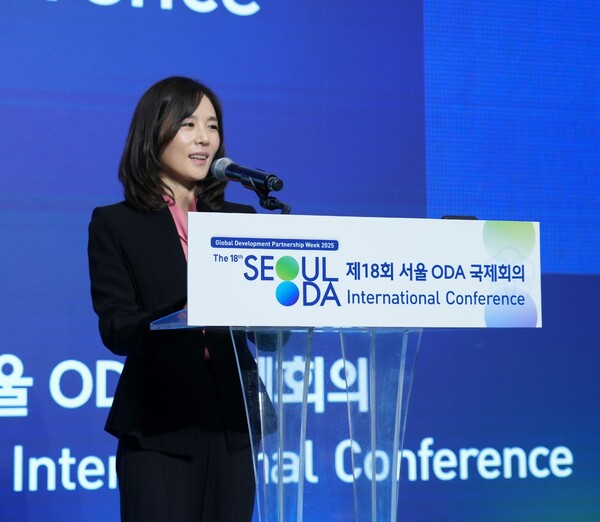2025 Busan Global Partnership Forum attracts attention

South Korea is hosting its first Development Cooperation Week, a week-long series of programs organized by the Ministry of Foreign Affairs (MOFAT) in partnership with the Korea International Cooperation Agency (KOICA).
The events, recently held at a downtown hotel, aim to strengthen dialogue on global development cooperation. Of note is the strong interest shown by the diplomatic corps in Seoul toward the 2025 Busan Global Partnership Forum.
Among those in attendance were Amb. Michelle Winthrop (Ireland), Amb. Pablo Ernesto Scheiner Correa (Uruguay), Amb. Amira Agarib (Sudan), Amb. Ivan Jancárek (Czech Republic), Amb. Jorge Enrique Valerio Hernández (Costa Rica), Amb. Helen Aitsi (Papua New Guinea) and Manuel Juan, Deputy Head of Mission from the Embassy of Costa Rica.
According to MOFAT, the Busan Global Partnership Forum, first launched in 2014, marks its eighth anniversary this year.
The 2024 edition was held in Seoul from Sept. 30 to Oct. 1 (Wednesday) under the theme “Development Effectiveness: Cooperation for the Future and a Ladder for Inclusive Growth.”
The forum brings together representatives from OECD donor countries, as well as ministers and vice-minister-level officials from more than 10 countries of the Global South across Asia, Africa, and Latin America.
The focus is on implementing effective international development cooperation and reinforcing inclusive partnerships to advance the Sustainable Development Goals (SDGs).
International organizations, academia, and civil society, including the United Nations Development Program (UNDP), are also participating to share perspectives on improving the impact of development cooperation.
In the lead-up to Busan 2025, the 18th Seoul ODA International Conference was held on September 29 at the Lotte Hotel in Seoul, co-hosted by MOFAT and KOICA.
The event brought together more than 400 participants, including government representatives from both donor and recipient countries, international organizations, development agencies, academia, civil society, and members of the diplomatic corps.
An additional 200 participants joined online, reflecting a wide interest in global development cooperation.
The Seoul ODA International Conference, held annually since 2007, has served as a platform for dialogue among government, private, and academic stakeholders to discuss major challenges and share experiences in international development.
The discussions come at a critical moment, as the world faces complex crises such as conflict, economic instability, and climate change, which threaten progress toward achieving the SDGs.
At the fourth General Meeting on Financing for Development (FfD4), held in Seville, Spain, in July, participants focused on mobilizing and effectively utilizing development resources.
The outcome document, the Compromiso de Sevilla, addressed key areas such as the international financial system, private resource mobilization, global development cooperation frameworks, and development effectiveness.
On Oct. 1, the 30th Steering Committee of the Global Partnership for Effective Development Cooperation (GPEDC) took place, where participants will discuss ways to strengthen inclusive partnerships and improve cooperation effectiveness in response to rapidly changing global conditions.
As one of the countries that spearheaded the launch of the GPEDC, Korea actively presented its position on the future direction of the organization.
Later the same day, Korea hosted the fifth MIKTA High-Level Meeting as the current chair of the group.
Representatives from Mexico, Indonesia, Türkiye, and Australia joined Korean officials to discuss “Enhancing the Role of MIKTA in the Age of Complex Crises: Discovering a Model for Joint Cooperation.”

